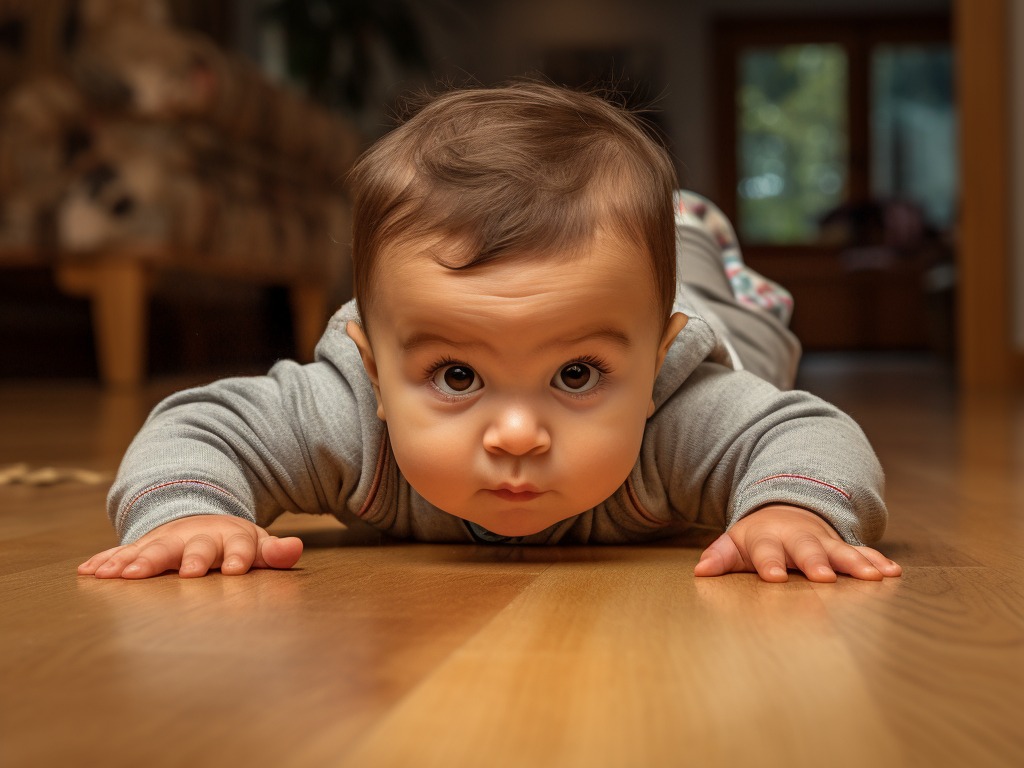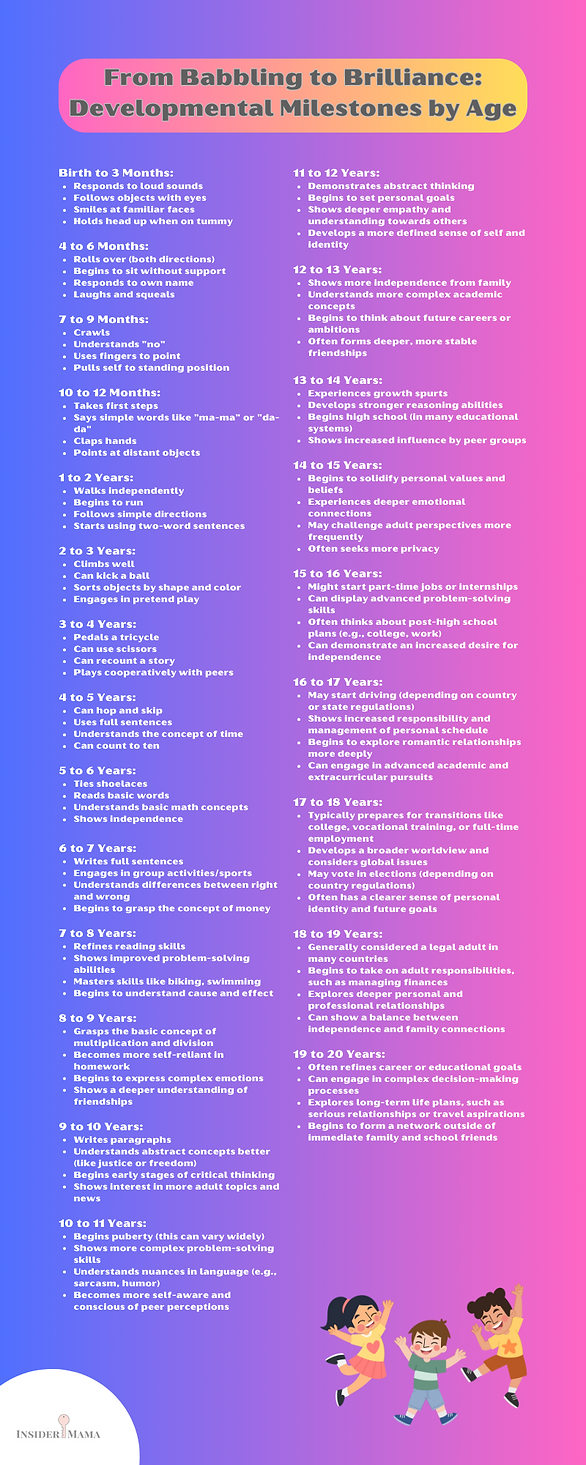Watching your child grow is one of the most rewarding experiences, but it can also be nerve-wracking when things don’t seem to be going as expected. If you’ve ever found yourself comparing your child’s progress to that of other kids their age, you’re not alone. Every child develops at their own pace, but certain signs might indicate that your child could be experiencing delayed development.
It’s important to pay attention to these signs early on, as catching them can make a big difference. From the first babbles to taking those wobbly first steps, there are key milestones that most children hit within a certain timeframe. When these milestones are delayed, it might be a sign to dig a little deeper.
For example, by six months, most babies start to show interest in their surroundings, respond to their names, and begin to babble. If your little one isn’t doing these things, it might be time to chat with your pediatrician. Similarly, by age two, children usually start forming simple sentences and following simple instructions. Delays in these areas can be another red flag.
Sometimes, it’s not about what your child is doing, but what they’re not doing. Lack of eye contact, limited interest in playing with others, or a sudden loss of skills they once had can all be signs of delayed development. It’s essential to remember that these signs don’t necessarily mean something is wrong, but they do warrant a closer look.
Understanding these signs can be overwhelming, but knowing what to look for and when to seek help can give you peace of mind. It’s all about being observant and proactive. Keep track of your child’s milestones and trust your instincts. If something feels off, it’s always okay to ask for advice. After all, you know your child better than anyone else.

This site contains affiliate links; please view the disclosure for more information.
Signs of Delayed Child Development: A Mom’s Gentle Guide
The Baby and Toddler Stages
“Oh, they grow up so fast!” We’ve all heard it, right? But what if your little one seems to be taking a bit longer to reach those cute milestones we often look forward to?
Physical Movements:
- If by 6 months your baby isn’t showing signs of rolling over or seems floppy (or on the flip side, super stiff)
- If by 12 months, there’s no attempt to crawl, and by 18 months they’re not yet walking. Remember that cute penguin walk? It’s a rite of passage!
Communication Skills:
- By 12 months, if they’re not making babbling sounds like “ma-ma” or “da-da”
- If by 24 months they’re not speaking at least a few words. But trust me, once they start, it’s like the dam gates have opened!
Social Skills:
- By 3 months, if they’re not smiling at familiar faces (come on, who could resist your lovely face?)
- If by 12 months, they’re not showing interest in games like peek-a-boo. Yep, the one where you disappear behind your hands. I mean, we’re basically magicians.
Baby (Birth to 12 months)
Vision and Hearing:
- By 3-4 months, if your baby doesn’t respond to loud sounds or follow objects with their eyes, it might be something to note.
- By 7-9 months, if they’re not reacting to facial expressions or turning towards familiar voices.
Cognitive Abilities:
- By 6 months, if they don’t show any interest or curiosity in surroundings or don’t respond to familiar toys.
- By 9-12 months, if they aren’t understanding basic gestures like waving ‘bye-bye.’
Emotional and Social Development:
- If by 4-6 months, they aren’t enjoying playtime or don’t have varied emotions (like smiling when happy and crying when upset).
- By 9-12 months, if they appear unusually passive, not engaging with caregivers or not expressing separation anxiety from primary caregivers.
Toddler (1 to 3 years)
Motor Skills:
- By 18-24 months, if they can’t push a wheeled toy or can’t hold a crayon.
- By 2 years, if they’re not able to walk up and down stairs even with support.
Cognitive Abilities:
- If by 15-18 months, they don’t point to show something of interest.
- By 2 years, if they can’t sort by shapes or colors. Picture a toy box scenario – everything goes in, nothing is categorized!
Language and Communication:
- If by 15 months, they haven’t used single words.
- By 2 years, if they don’t use two-word combinations (like “more juice” or the classic, “no mine!”).
Emotional and Social Development:
- By 18 months, if they don’t seek your attention or aren’t keen on pretend play.
- By 3 years, if they’re showing minimal interest in other kids or don’t play pretend games (like playing house or “cooking” in a pretend kitchen).
Adaptive Skills:
- By 2 years, if they can’t help undress themselves or have difficulty using spoons and forks.
- By 3 years, if they aren’t showing interest in potty training.
The Preschool Years: Signs of Delayed Child Development
The age of exploration! When the world is their oyster, and every day is an adventure. But what if Dora and Diego have been exploring a bit more than your little one?
Physical Abilities:
- If by 3 years, they have difficulty running, hopping, or can’t handle basic puzzles (those big chunky ones where the dog piece pretty much screams, “Put me in the dog slot!”)
Communication Skills:
- If by 3 years, they’re speaking less than half the time in sentences. “Me want cookie!” counts, though.
- If they’re not following stories or can’t tell you about their day by 4 years.
Social and Play Skills:
- If by 3 years, they’re more interested in playing alongside kiddos instead of with them. Like, “I’ll build my sandcastle over here, you stay there.”
- If by 4 years, they don’t engage in imaginative play. No tea parties or pretending that stick is a mighty sword? Might be worth noting.
The School-Going Munchkins
Here come the big kids on the block! Backpacks, shiny lunch boxes, and all. But what if your child seems to struggle a bit more than their classmates?
Physical Milestones:
- Trouble with buttons or using scissors by 6 years. And no, I’m not talking about that one time they gave their teddy a haircut!
Learning and Communication:
- If by 5 years, they have a hard time with rhyming games (you know, cat, hat, bat, gnat…).
- Struggling to understand instructions or often forgetting what they were just told.
Social Signs:
- Difficulty making friends or often feeling left out. Oh, my heart! But remember, it’s not about quantity but quality.
Now, breathe. Phew! That was a whirlwind tour, wasn’t it? Remember, these are just signs, not certainties. And like that one time you tried that 10-layer lasagna recipe and had to adapt, children too develop at their own pace. Some take a shortcut, and some take the scenic route.

Tween Transition
A mix of dolls, video games, first crushes, and everything in between.
Physical Abilities:
- If by age 10, they struggle with activities like hopping, skipping, or bike riding.
- Having a harder time with hand-eye coordination tasks. Remember that dreaded catch-ball game?
Learning and Communication:
- Struggling with basic reading or math concepts that their peers seem to grasp.
- They seem to have difficulty holding a conversation or often mix up words.
Social Interactions:
- They’re often feeling isolated or don’t quite “get” the social cues. Like laughing a tad too long at a joke or not understanding sarcasm (though, let’s be honest, some adults still struggle with that).
Getting Involved
- Stay Observant, Not Obsessed: Notice any signs? Keep a diary. Jot down what you observe. This isn’t a ‘gotcha’ journal but a ‘let’s see how we’re growing’ journal.
- Engage and Play: Sometimes, all they need is a little push. Not on the swing (well, yes, that too), but in their development. There are tons of age-appropriate activities out there that can promote growth. Like sensory play for babies, counting games for toddlers, and interactive stories for older kids.
- Seek Guidance: If you have concerns, speak to a pediatrician or a child development specialist. They’re the real superheroes in white coats and can offer a wealth of advice.
The Bigger Picture: Signs of Delayed Child Development
Alright, so we’ve talked about the signs. But it’s also essential to view these signs with a broader lens.
Nature vs. Nurture: Sometimes, a child’s environment can influence their development. For instance, a kiddo who hasn’t had many chances to play with others might need a bit more time to warm up to group games.
It’s Not A Competition: Your neighbor’s son might be a math whiz, and your friend’s daughter might be the next Beethoven. But remember, your child has their own strengths. Maybe they’re the future Picasso or even the next top chef. (Those cupcakes they made last week? Delish!)
Let’s Chat About It: Engage with teachers, other parents, and even siblings. Sometimes, getting multiple perspectives can offer clarity. Little Jimmy’s teacher might tell you he’s a chatterbox in class, or Grandma might have noticed he’s a pro at memory games.
Creating a Supportive Environment
If you’ve noticed signs of delayed child development, one of the best things you can do is ensure your home and their learning environment is supportive.
Fun Learning Tools: There are a plethora of toys and games designed specifically for various developmental stages. Board games, interactive books, and even certain video games can be both educational and fun. Win-win!
Group Activities: This can be a game changer, especially for social skills. Team sports, music classes, or art groups can help kids learn collaboration, patience, and other essential life skills. Plus, there’s the added benefit of making new friends.
Routine is Golden: Children, especially those who might be lagging a bit, often thrive on routine. A consistent daily schedule helps them understand what’s coming next, which can be very comforting.

Final Thoughts on Signs of Delayed Child Development
Understanding and recognizing the signs of delayed child development can feel daunting, but it’s a crucial part of parenting. By staying observant and proactive, you can ensure your child gets the support they need, if they need it. Remember, every child is unique, and delays don’t always mean something is wrong. Trust your instincts and don’t hesitate to reach out to your pediatrician for guidance. Early intervention can make a world of difference, helping your child thrive in their own time. So, keep celebrating those small victories and stay connected with your child’s growth journey. You’re doing great, and your awareness and care are the best tools in supporting your child’s development.



